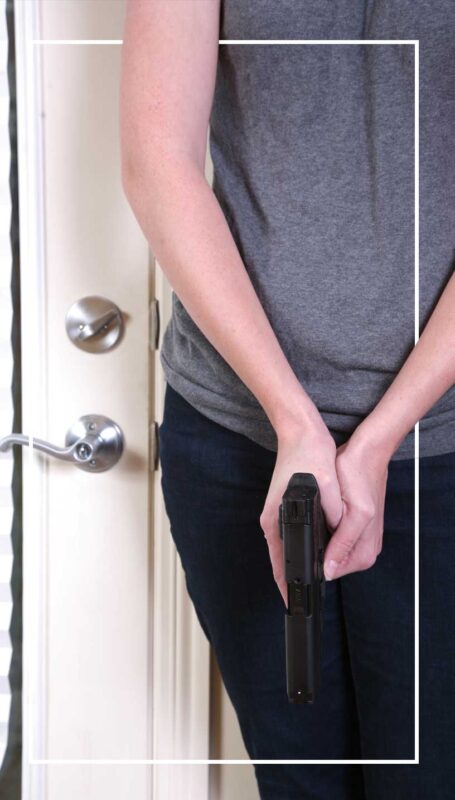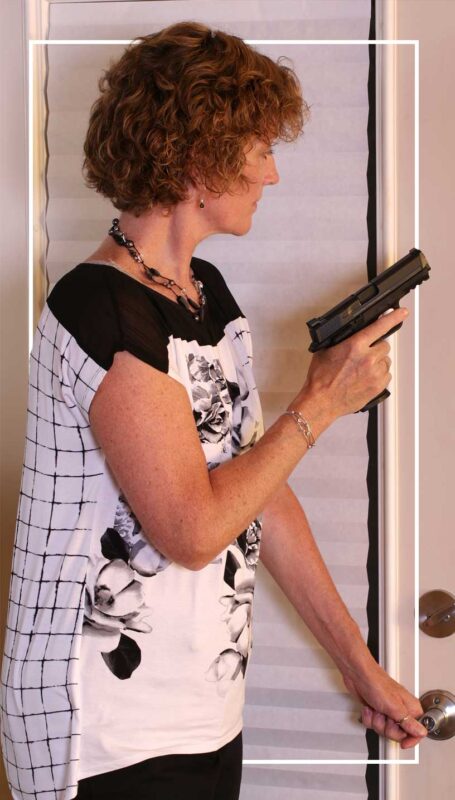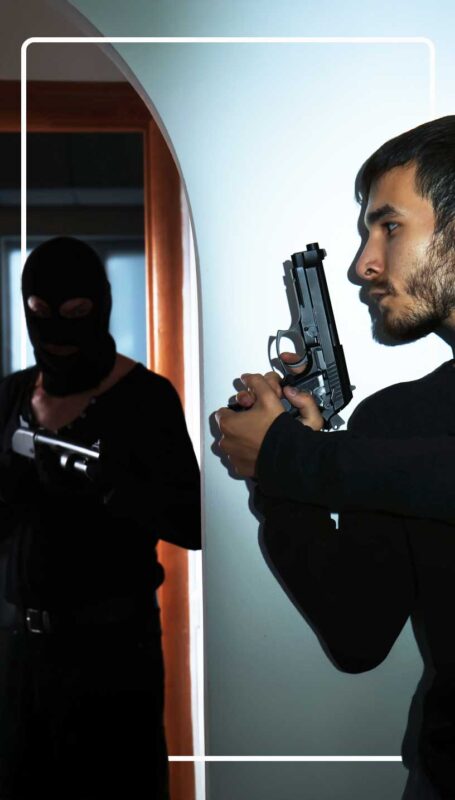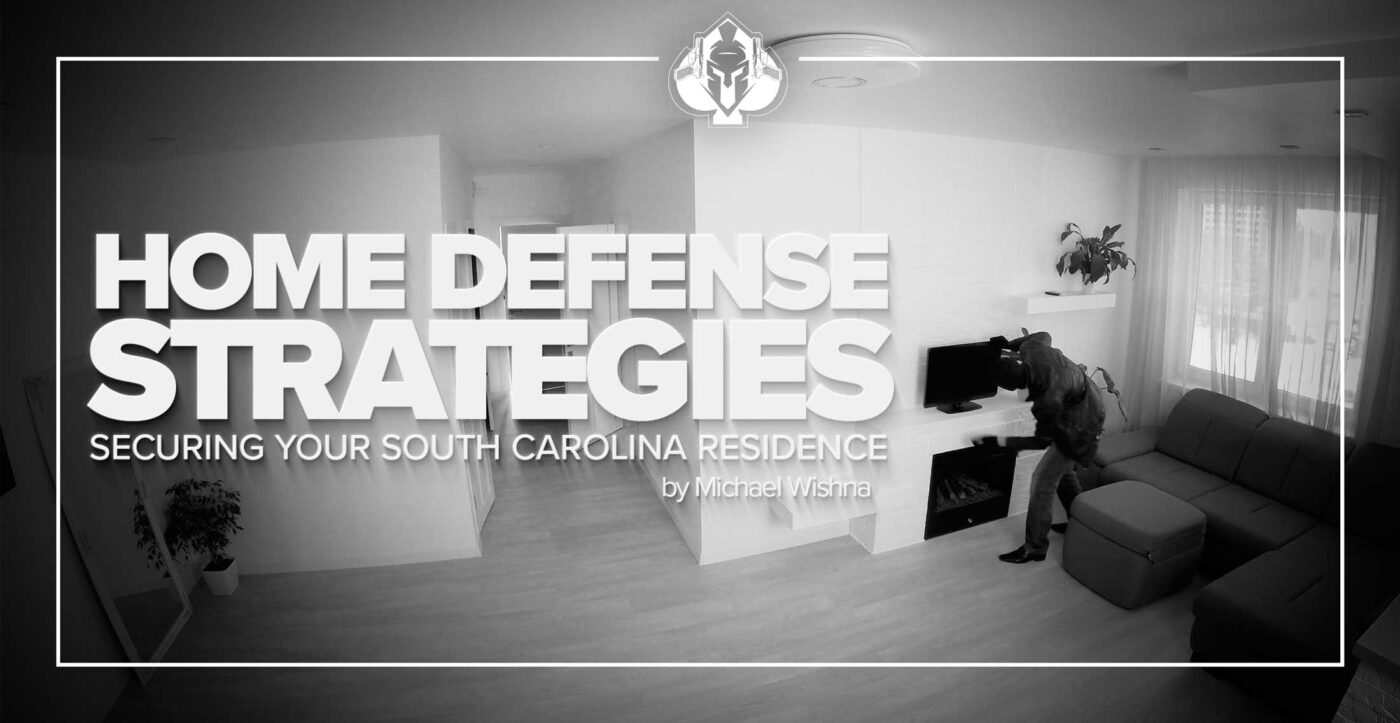In South Carolina, the safety of your home is a priority that extends beyond locking doors at night. Understanding how to effectively secure your residence against potential threats is crucial for peace of mind. Home defense goes beyond owning a firearm; it includes choosing the right defensive tools, storing them safely, creating tactical plans, and knowing the laws that dictate their use. This comprehensive guide will provide you with effective home defense strategies, focusing on firearm selection, safe storage, tactical scenarios, and the legal considerations every South Carolinian should be aware of to keep their residence secure.

1. Firearm Selection for Home Defense
The choice of a firearm for home defense is highly personal, and making the right selection depends on several factors: comfort, familiarity, home layout, and state regulations. For many homeowners, the options are between handguns, shotguns, and rifles. Each has its advantages and disadvantages:
-
Handguns: Compact, easy to handle, and suitable for quick access in close quarters. Handguns are often recommended for home defense due to their maneuverability and versatility. In South Carolina, you do not need a permit to keep a handgun in your home, but it’s crucial to understand the training needed to operate one safely.
-
Shotguns: Shotguns are a popular choice for home defense due to their stopping power. The widespread pattern of buckshot can be an advantage in high-stress situations where precision aiming may be difficult. The sound of chambering a round can also act as a deterrent to potential intruders. However, shotguns require practice to handle effectively, particularly in tight spaces.
-
Rifles: While rifles offer accuracy and power, they may not be the best choice for indoor defense due to their size and potential for over-penetration. AR-style rifles are commonly owned but should be used with consideration, particularly in neighborhoods where stray rounds could endanger others.
When selecting a firearm for home defense in South Carolina, be sure to handle several types at a local gun store or range to see which feels the most comfortable. Training is key, so consider enrolling in a firearms safety course offered by a certified South Carolina instructor.
2. Safe Storage of Firearms
Safe storage is essential, not only for the security of your family but also for compliance with South Carolina law. Unsecured firearms can pose a significant risk to children or unauthorized individuals in your home. Here are a few effective strategies for safely storing firearms:
-
Gun Safes and Lockboxes: A sturdy gun safe is the best way to keep firearms secure. Choose a safe that is bolted to the floor and offers quick access options, like biometric locks, for emergencies.
-
Trigger Locks: Trigger locks can add an extra layer of security for firearms that are not immediately needed. These are particularly useful if you have multiple firearms and only need one or two for home defense purposes.
-
Hidden Safes: Concealment options such as hidden safes or furniture that doubles as secure storage can keep your firearm readily available while keeping it out of sight. This method is useful in ensuring quick access without advertising the presence of a weapon.
It is also important to educate all household members about firearm safety. Children should be taught to never touch firearms, and anyone in the home should know the basics of accessing and using the firearm safely if necessary.
3. Understanding Legal Considerations in South Carolina
Owning and using a firearm for home defense comes with significant responsibilities. South Carolina has specific laws regarding the use of deadly force, and it’s vital for homeowners to understand these regulations to avoid legal repercussions.
-
Castle Doctrine: South Carolina’s Castle Doctrine allows homeowners to use deadly force if they believe an intruder is attempting to enter their home unlawfully and poses an imminent threat. This law provides immunity from prosecution in cases of justifiable home defense, but there are conditions that must be met, such as ensuring the intruder has entered or is attempting to enter unlawfully.
-
Duty to Retreat: South Carolina does not have a “duty to retreat” law, meaning that if you are inside your own home, you do not have to try to leave or avoid the situation before defending yourself. However, using force must be reasonable and proportionate to the threat faced.
-
Storage Laws: While South Carolina does not currently have specific safe storage laws mandating how firearms must be stored in the home, negligence that leads to unauthorized use, particularly by minors, can result in criminal liability. As a responsible gun owner, always ensure that your firearms are inaccessible to those who may misuse them.
Understanding these laws will help you make informed decisions about the use of force in home defense situations and ensure that your actions remain within the bounds of the law.

4. Custom Home Tactical Training Scenarios
For those interested in a hands-on approach to home defense, Wish Firearms and Tactical Training offers custom Home Tactical Training sessions designed to address real-world scenarios you may face. Here are some of the key components and scenarios covered in our training:
-
Home Walkthrough and Vulnerability Check: Our experts will walk through your home to identify potential vulnerabilities such as unsecured entry points, poor lighting, or landscaping that provides hiding spots for intruders. Identifying these weaknesses is crucial in forming an effective defense strategy.
-
Family Safety Drills: Does your family know what to do in case of an intruder? We guide you in developing and practicing a safety plan that includes clearly defined roles for each family member, safe zones, and emergency contact procedures. These drills help reduce panic and ensure everyone knows their responsibilities.
-
Mock Home Invasion Scenarios: One of the most effective ways to prepare for an emergency is by practicing through mock scenarios. Our training includes realistic home invasion drills, helping participants respond calmly under stress, find safe exits, or secure family members effectively. We simulate multiple scenarios, including day vs. night invasions and the presence of multiple intruders.
-
Tactical Checklist and Defense Map: After identifying vulnerabilities, we help you develop a tactical checklist and defense map of your home. This includes highlighting defensive positions, escape routes, and locations of emergency supplies and firearms. The goal is to ensure that everyone knows what to do and where to go.
-
Firearm Accessibility and Use Under Pressure: A crucial part of home defense is being able to access your firearm safely and use it under high-pressure situations. We work with you on techniques to access firearms quickly from secure storage, and engage targets effectively. Training on safe and effective usage can make all the difference in a life-threatening situation.
-
Using Non-Lethal Defense Options: Firearms are not the only means of home defense. We discuss additional non-lethal options such as pepper spray, tasers, and how to effectively use everyday household items as defensive tools. These options can be essential in situations where deadly force is not warranted.
-
Mock-up Layout of Your Home: As an optional add-on, we provide a mock-up layout of your home with a detailed defense plan. This layout serves as a valuable reference for your entire family, helping reinforce knowledge of safe zones, defense strategies, and the tactical use of each area of your residence.

5. Additional Home Defense Tactics
Firearms are just one part of a complete home defense strategy. Consider supplementing your home’s security with the following:
-
Security Systems: A robust home security system that includes alarms, cameras, and motion detectors can provide early warnings and deter would-be intruders.
-
Reinforced Doors and Windows: Invest in reinforced doors, heavy-duty locks, and security film for windows to make forced entry more difficult. A well-fortified entry point can delay or even deter intruders.
-
Lighting and Landscaping: Outdoor lighting and thoughtful landscaping can remove hiding spots for potential intruders. Installing motion-activated lights can make anyone approaching your home visible, which can deter criminal activity.
Securing your South Carolina home requires a multi-layered approach that includes selecting the right firearm, storing it safely, understanding the laws that govern its use, and practicing tactical responses. By combining practical home defense tactics with a solid understanding of your rights and responsibilities as a firearm owner, you can ensure your home remains a safe haven for your family. Take the time to prepare, practice, and invest in comprehensive security measures—your peace of mind is worth it.
For those seeking personalized home defense training, Wish Firearms and Tactical Training provides custom Home Tactical Training sessions that ensure your family is ready for anything. Don’t be another statistic—take action today to secure your home and loved ones.



